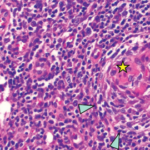ACR Convergence 2021—The field of pediatric rheumatology has benefited from significant developments in the basic and translational sciences over the past year, and it can be challenging to keep up with the latest discoveries. In the Basic Science section of the Pediatric Rheumatology Year in Review at ACR Convergence, Tiphanie Vogel, MD, PhD, assistant professor…









